-

The searchers
An impending lease expiry, predicted growth in headcount and a desire to improve the workplace experience of its staff led SEEK to look beyond its existing office space and set out on a path towards its own, custom-designed environment. Sean McGowan reports on that seven-year quest, which led to a high-performing, comfortable and naturally lit space.
-

Grave impact
According to the annual report from the World Meteorological Organization (WMO), climate change continued to advance at a tremendous and impactful clip in 2022.
-
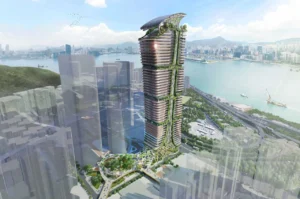
Tree of life
Given a blank page, an engaged client, a set of unique site constraints and permission to invent new ways of bringing a building to operational life, Cundall’s building services and sustainability engineers have created an award-winning design for a net zero commercial tower in Hong Kong.
-

Disaggregation of precipitation data applicable for climate‑aware planning
High-temporal-resolution precipitation data of the past along with other data of weather elements are required for applications in the design and simulation of built environments. However, the available data of precipitation is either low-resolution, e.g., daily, or not long enough to produce reliable and climate-responsive results for built environment applications.
-
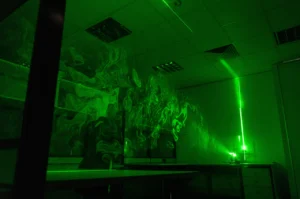
Deep breath
An innovative research project initiated by the City of Melbourne has increased energy efficiency in office buildings while also decreasing COVID-19 transmission. Louise Belfield reports.
-
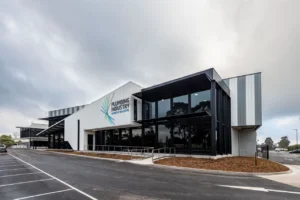
Underground movement
How do we unlock geothermal energy potential in high-performance buildings? Plumbing Industry Climate Action Centre CEO Shayne La Combre has some thoughts.
-

Heart of Texas
The Dell Children’s Medical Center of Central Texas is the world’s first hospital to earn LEED Platinum.
-

Goal oriented
Since 1988 the Sydney Football Stadium has been the Harbour City’s premier rectangular field venue, regularly hosting internationals played by the Kangaroos, the Wallabies, Socceroos and Matildas as well as NRL, Super Rugby and A-League games. Find out how the design team had particular sustainability aspirations at heart.
-
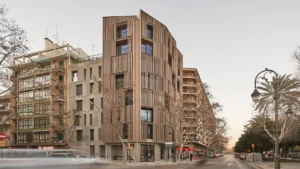
Wood that it could
By embracing the Passivhaus standard, a new apartment building in Palma, Spain, classifies as an nZEB (nearly zero energy building).
-
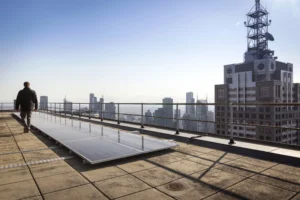
High solar
For more than 30 years, 101 Collins Street has remained one of Melbourne’s most prestigious office building addresses. Now on a path of decarbonisation, its management team aims to leverage the innovation of the HVAC industry to deliver a fully electrified building.
-
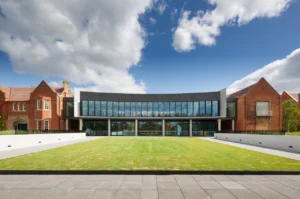
Sound investment
Canberra Grammar School’s new Snow Concert Hall features a subterranean design boasting an innovative ground‑source heat pump system.
-

Streamlining electrification in support of decarbonisation
Our industry has increasingly focused on the electrification of building utilities coupled with low-carbon electricity to support the global decarbonization effort. Examples include the University of California’s system-wide ban on the use of on-site fossil fuel combustion in new construction and major renovations, and the City of Seattle’s recently passed measure to prohibit the use of natural gas for space heating in new construction and major replacements of heating systems in commercial buildings, as well as for water heating in new hotels and large apartment buildings. This column presents an approach to integrating the production of domestic hot water with an electric heat-recovery chiller plant as a streamlined solution.
-
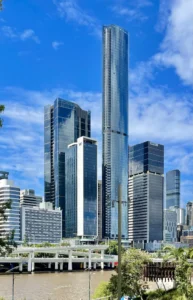
Triple treat
Located in the heart of the CBD and overlooking the river, Brisbane Quarter is Brisbane’s first truly integrated, world-class mixed-use precinct. Consisting of three buildings, the project presented the ideal scenario for a district-style heating and cooling scheme. Sean McGowan reports on the design and construction of the HVAC systems serving this $1 billion development.
-

Revving up the built environment’s engine room
HVAC&R specialists have key role to play if Australia is to meet emissions targets and keep building healthy, argues ARBS Chairman Tony Arnel.
-

The key to net zero?
A new ASBEC report confirms electrification “unlocks the pathway” to net zero buildings.
-

Feasibility study of wastewater energy transfer for an existing campus building cluster
The HVAC-related energy usage of a group of three existing buildings on a Canadian university campus (the “Cluster”) was simulated. Two scenarios were compared: (1) an ambient loop paired with conventional HVAC equipment (boiler plant and cooling tower), and (2) an ambient loop using wastewater energy transfer (“WET”). The study aimed to assess the feasibility of implementing WET as a heating and cooling method for cold-climate institutional buildings, as well as to measure the effects of WET implementation on energy usage, greenhouse gas emissions, and energy costs
-
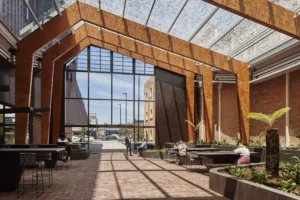
Wooden performance
One of three similar facilities to be built in regional Victoria, the Ballarat GovHub is helping to revitalise the CBD of this regional centre and centralise government services in the area by accommodating up to 1,000 workers. Mass timber is at the heart of the building’s superstructure.
-

Planning for performance
The Australian federal government has commenced work to develop a National Energy Performance Strategy.
-
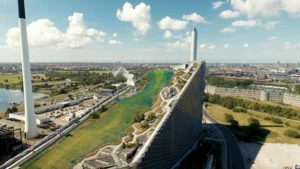
Peak performance
A Danish power plant that converts trash to energy just happens to also be a year-round ski slope.
-

Unprecedented precipitation, insufficient adaptation
As parts of the world experienced record downpours, the Arctic ice continued its seemingly inexorable retreat.